Lalibela Ethiopian Restaurant - Telling Their Story
A story short with husband and wife team Shilmat & Wub Tessema on serving up traditional food and culture at Lalibela Ethiopian Restaurant since 1999 plus the 24/7 demands of the kitchen and raising a family of three now grown children. The full transcript of the interview is below. Listen by podcast or at the link above or check out this synched audio and photo slideshow.
This story is one in a six part series of BIPOC food business owners sponsored by The Yale School of the Environment. We hope these stories inspire you to check out these delicious family run businesses (if you are lucky enough to live near by), and to spend more time getting to know the people in your community who make and sell food. Stories produced by our host Tagan Engel, edited by Jon Oliver Music, photographed by Maza Rey Photography.
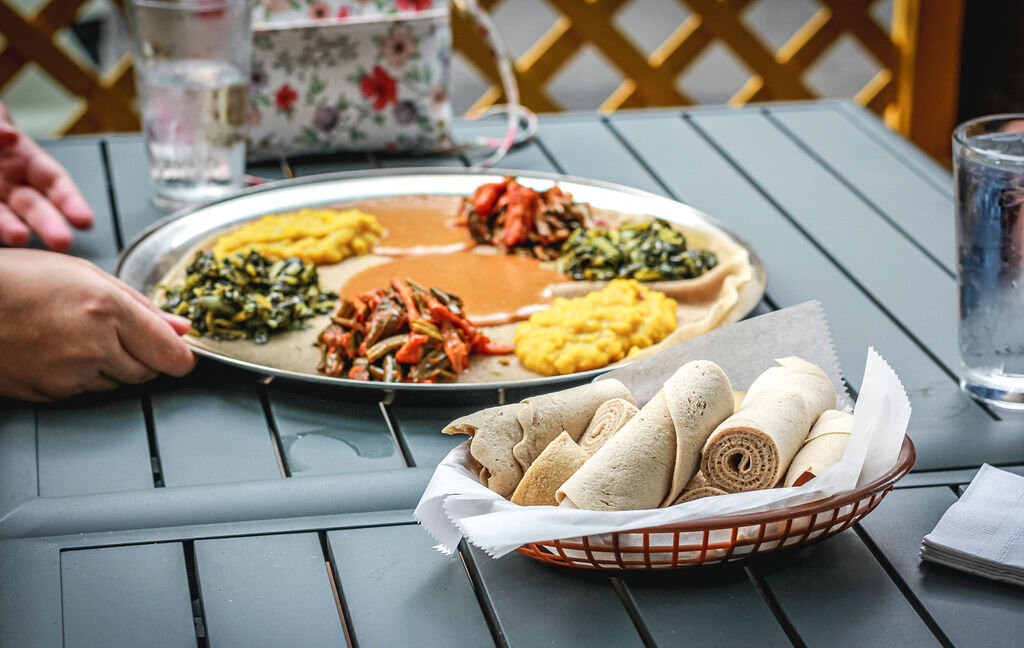

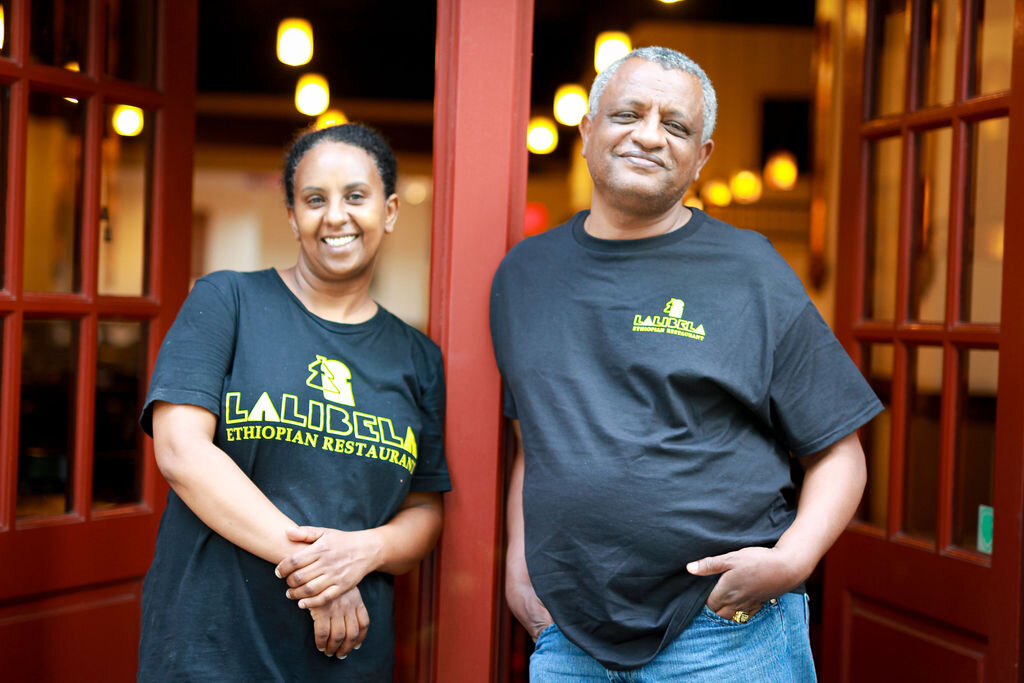
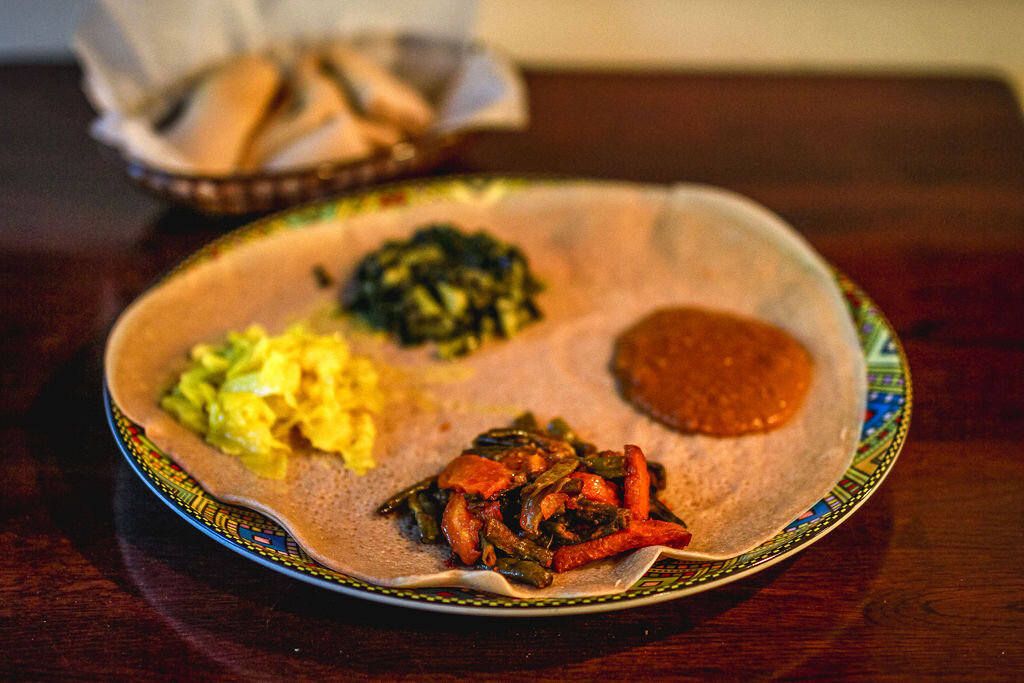
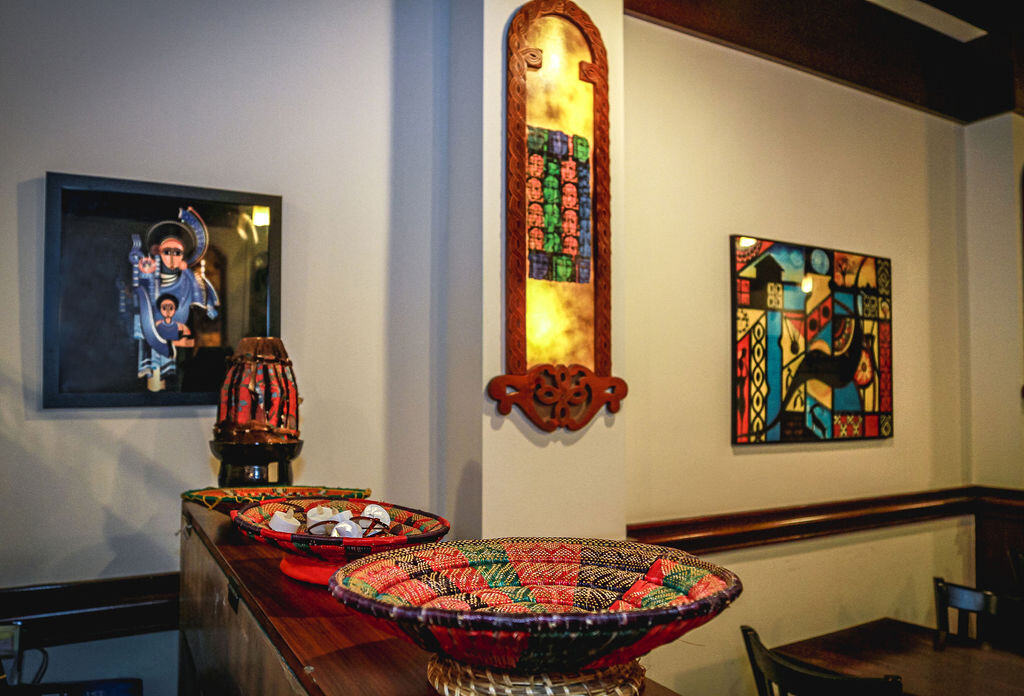
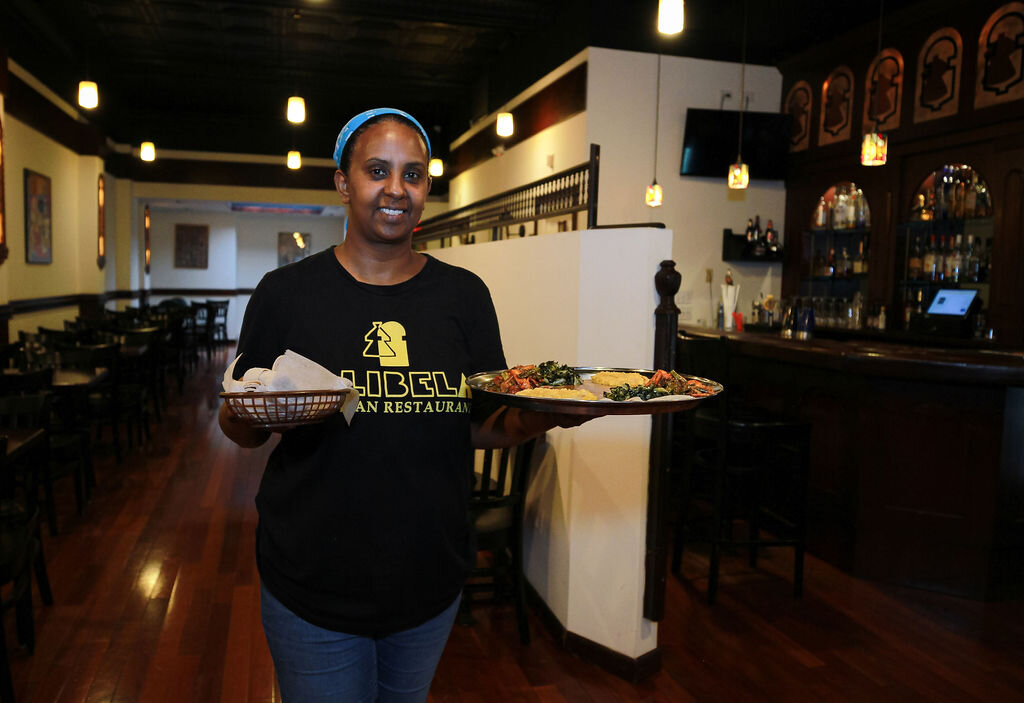
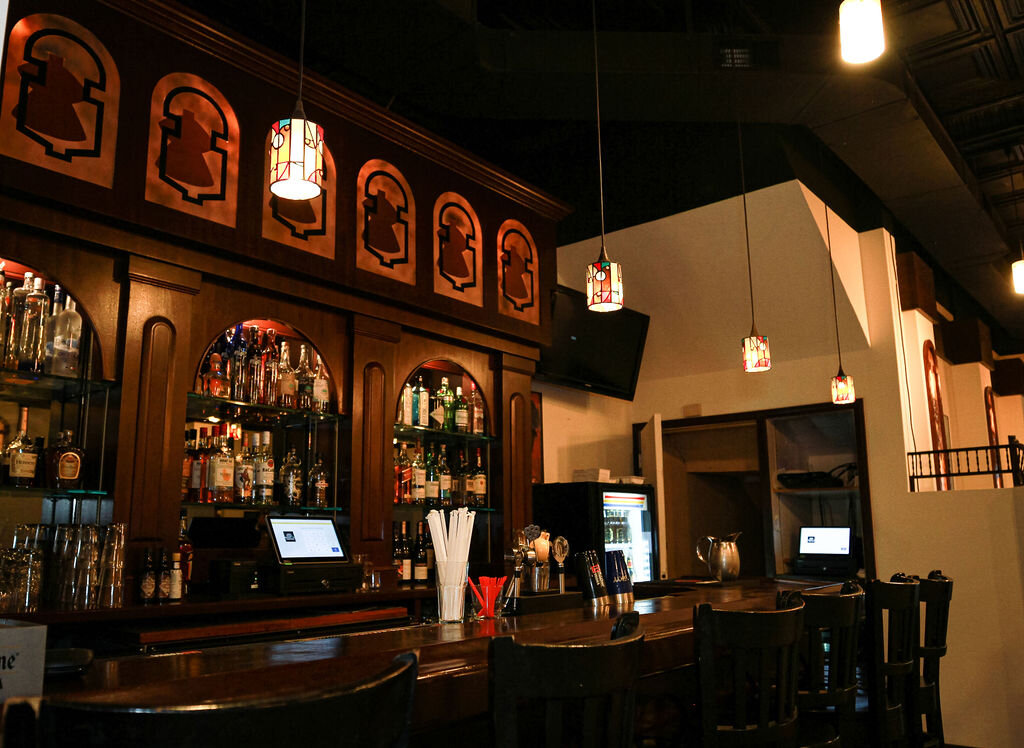
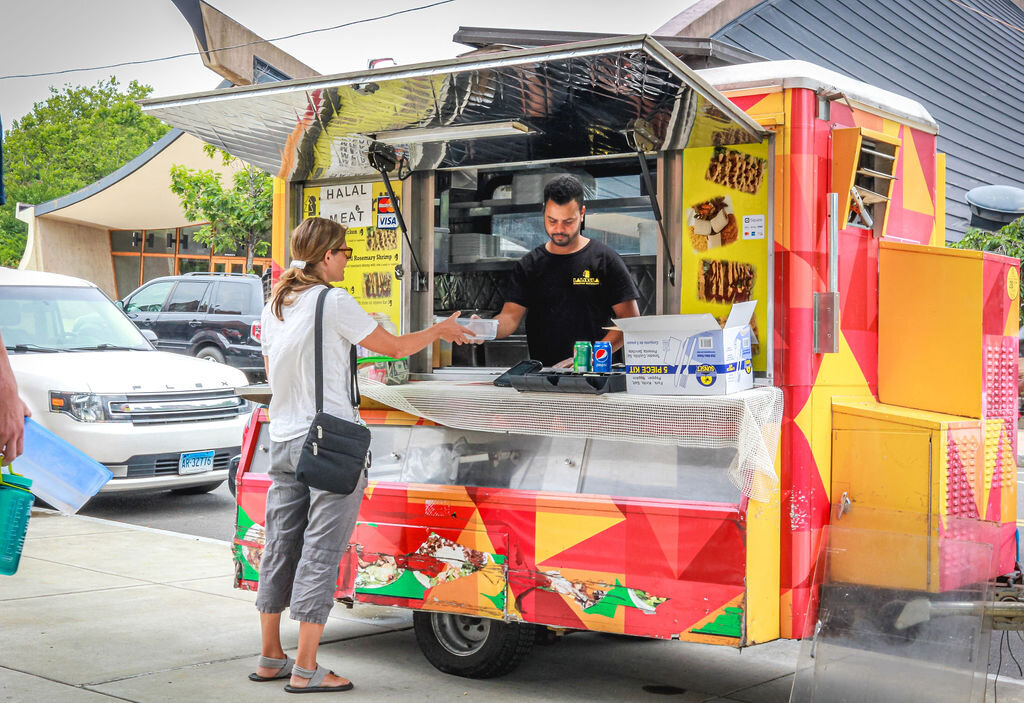
Transcript of Conversation with Shilmat and Wub Tessema
Husband and Wife team who own and run Lalibela Ethiopian Restaurant
Shilmat Tessema: My name is Shilmat Tessema, and the restaurant called Lalibela Ethiopian Restaurant and we open 1999
Wub Tessema: My name is Wub Tessema. I came to United States in 1995 from Ethiopia. My brother used to live in North Haven, Connecticut, and I moved there.
Shilmat: He came in 1998. I got married to my husband. And then we have three kids. So Connecticut is my home.
Wub: In Ethiopian culture women take their cooking from their parents. In this case, my wife, who is owner and the chef, she learned how to prepare Ethiopian food from her mother who used to live for many years with us in Connecticut. Ethiopia is the only country in Africa has never been colonized. Ethiopian cuisine is not hybrid from European or other countries. It's indigenous homegrown cuisine not be colonized makes that food very authentic unlike others. The way people eat the food is with hands, with fingers. As you know other cuisines, they use either forks or other way so it makes people a good experience, the natural way of eating food. The restaurant was open actually due my brother who started the business in 1999. We took over the business from my brother in 2007.
Shilmat: Since open I used to work the restaurant. I love to cook a lot of vegetarian dishes, vegan. My favorites is collard green. A lot of people like fossolia, green beans and carrots, spinach and potato. They also like a lot of greens. Spicy lentil is my favorite. I love to cook all those things on top of that spicy chicken doro wat. Injera bread is spongy flatbread; has teff and flour. We mix it the day before, half teff and half flour. Also gluten free -- just teff by itself -- is available. We mix it the night before and then the next day we make it fresh. Every day the morning is we bake it and afternoon is we bake it, so every day is fresh food.
Wub: One of our most popular appetizers called sambusa. A lot of our customers really love it. They crazy about. Not only the sambusa but the dip that comes with it. We call it buticha dip prepared by my wife -- homemade. People are crazy about it.
Shilmat: The dip has different spice but the main is the chickpeas. It's like hummus but it's not really hummus, is different kind of flavor in it.
Wub: Ethiopian cuisine is not like some people go to culinary and you learn it. You have to learn it from the family. It passes from family to family, in this case from her mother to her. My wife most times she checks the cooks. And she must be there every day. She doesn't take vacation long. Most of the time she really spends her time there. That is very challenging.
Shilmat: Yeah, it's not like you train people. You bring them, you train them right away. It takes a long time even if you train them the way you want to. Also it's difficult for them to learn it the way I learned it so I have to be here the minute I open until I close. We have the restaurant, also we run the food cart in two different places in New Haven. Most the food that we serve, also serve at the restaurant. At the cart we sell less price than the restaurant. Some customer they expect to come to the restaurant and pay the same price as the food cart. Even though the food carts only lunchtime, but they don't have more choice as the restaurant so you know people should come to the restaurant to get more choice.
Wub: What really I love at the restaurant when customers come the first time experience Ethiopia food. And by eating Ethiopian food, experiencing it by the same time they have exposure to Ethiopian culture, the music or other Ethiopian things so it's like a vehicle to introduce Ethiopian culture.
Shilmat: Also we have the customer throughout the years they keep coming in again and again. That is more rewarding and is exciting. You see them after five years, 10 years, they still loyal customer. So that is really you know one of the things I look forward.
Wub: Well, I want to stress how Ethiopian food is really good but my wife is a chef, she's really the way to make sure the food is prepared in an authentic Ethiopian way. That's what makes people love our food.
Ep. 78 — The Table Underground — Sep 14, 2021




